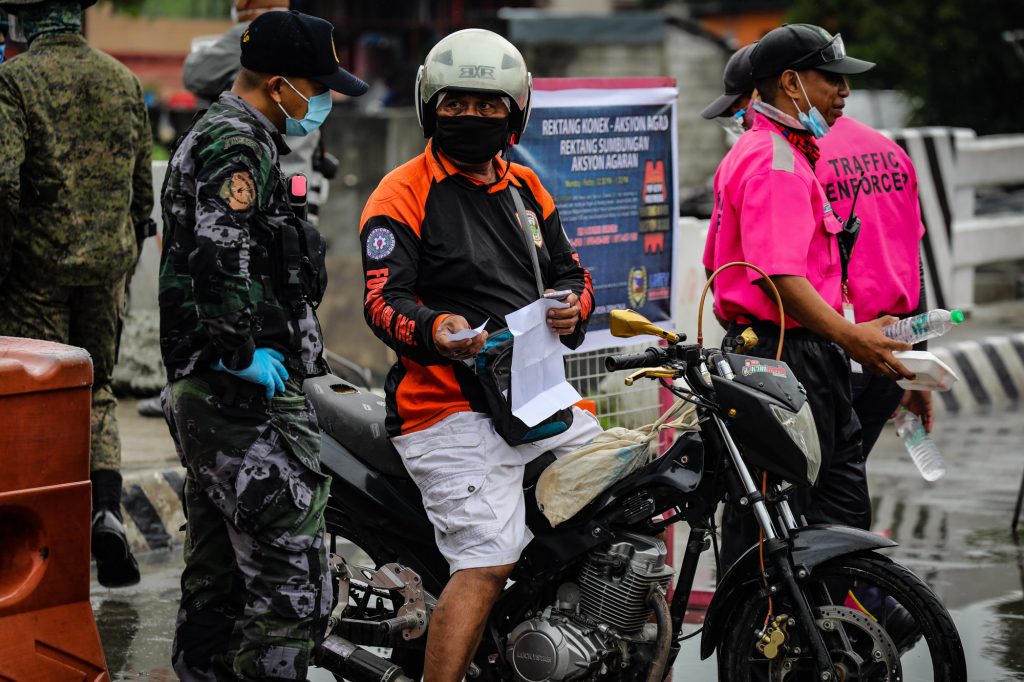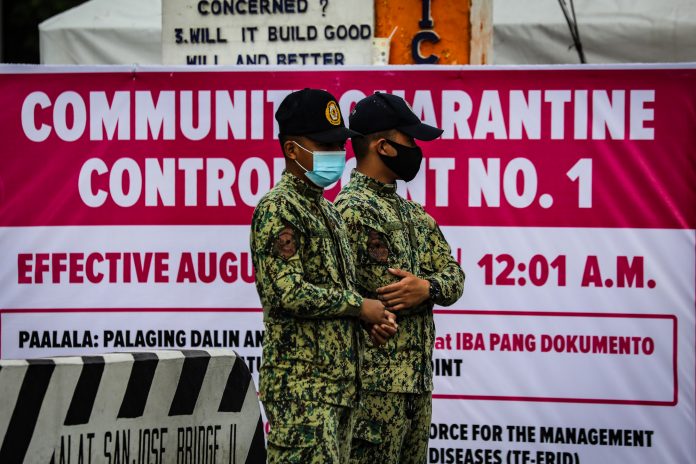The world, it seems, is on the brink of collapse.
August 5 saw simultaneous explosions and massive fires in Beirut, North Korea, China, Iran. A day after, fires razed the Ajman Market to the ground, which is a good 40 minutes from Dubai.
Many say these were deliberate acts of terror or war; others, accidents waiting to happen. One could almost predict the string of conspiracy theories resulting from these tragic incidents, enough to crowd out of Google legitimate news and commentaries from those in-the-know.
At the home front, a scandal allegedly involving tens of billions, even hundreds of billions of public insurance health funds across several administrations, is rocking everyone’s confidence, or whatever’s left of it, in a government long accused of corruption.
Money better spent in solving the raging pandemic allegedly ended up either in officials’ pockets, aptly called a ‘Mafia-style syndicate’ by the whistle-blower, or wasted on equipment no more indispensable during contagion than an iPhone.
People are dying. The infected has breached the 100,000th mark. Doctors and nurses are succumbing not only to the ill-effects of the virus and the trauma of 12- to 24-hour shifts, but the greater pandemic of insensitivity of the Duterte administration.
After five months of varying quarantine levels, not a single concrete, science-based plan to counter the virus has been placed on the table by the Inter-Agency Task Force on Emerging Infectious Diseases (IATF).
Putting a retired general to head the Philippine Health Insurance Corporation (PhilHealth), a state-run insurance agency, was a bad idea from the start. Imagine the IATF where key posts are occupied by retired and active military top brass.
Who would’ve thought that a group of uniformed officers, trained in the wisdom and rigor of formulating strategies, would end up like severed chicken heads amid a raging virus? Well, the president should’ve been aware early on that the pandemic is a purely medical issue, not a military one.
The expertise of these officers is clearly poles apart from the problem.
At the rate the country is going—downhill, that is—it’s no wonder we crash landed into a long-expected recession. The leap from one lockdown to the other forced the economy to contract 5.5% in gross domestic product (GDP), shrinking 16.5% in the months April and June.
Al Jazeera said in a report, “Gross domestic product (GDP) fell by much more than the 9 percent contraction forecast in a Reuters poll and was worse than a revised slump of 0.7 percent in the first quarter. Seasonally adjusted GDP fell 15.2 percent in the second quarter from the first three months of the year […] Capital Economics said the 16.5 percent second-quarter shrinkage is likely to be one of the biggest falls in the region.”
To make matters bleaker, massive repatriation of overseas Filipino workers due to retrenchments and closure of businesses abroad brought down foreign remittances significantly, affecting private consumption, the driving force of two-thirds of GDP. Top this with the 1.73 million unemployed Filipinos domestically due to Covid-19 (predicted to reach 10 million by end of the year), the picture is anything but reassuring.
People fear the worst: that this government is using the Covid-19 to sustain its grip not only on power but resources. And what better way to rob the people blind of trillions worth of Covid-19 insurance funds, donations and loans than to have them all holed up in the homes, fearing for their lives.
The successive shutdowns of media bureaus and retrenchment of journalists due to the pandemic, to say little of harassment coming from government, made the job of exposing corruption even more problematic, almost impossible.

The medical community had little choice but to call for stricter quarantine protocols to restrain the further spread of infections. Their purpose: to recalibrate strategies and realign these with medical science.
Looking at this from a larger perspective, I recall the words of Uruguayan journalist Eduardo Galeano, who said, “We are in the midst of a tragic but perhaps healthy crisis of convictions—a crisis for those who believed in states that claimed to belong to everyone but were really for the few and ended up being no one’s.”
Forced into isolation by a virus and a government hellbent on shooting anyone breaking quarantine—except when you’re an ally—one’s fears and patience easily turn into rage. Whatever “healthy crisis of convictions” we can come up with from our current state of affairs help little in relaxing our fears of facing an unwelcome future.
All is not lost, I’m sure, as the world’s best minds scramble to create a vaccine. It is nevertheless focal to the sustainability of social and economic life to stop the militarization of the pandemic. Militarization only proves that the Duterte administration regards the people as the enemy and not the virus. Bullets have no power over contagion.
The key agency that should be pushing for a more medical science-based approach to the pandemic is the Department of Health (DOH) under Secretary Francisco Duque III. It seems to many, though, that the DOH is playing along, crouched in the heels of this administration’s military and police campaign.
This prompted the medical community of more than a hundred-strong organizations to say in a letter, “We are waging a losing battle against COVID-19, and we need to draw up a consolidated, definitive plan of action. Hence, we, as your healthcare frontliners call on our national government to return Manila to ECQ beginning August 1-15.”
The group raised several issues that should be addressed immediately: reduction of hospital workforce; why the use of rapid tests and not RT-PCR tests (the former being highly inaccurate); failure of contact tracing and quarantine; long-term transport safety solutions; workplace safety through testing (workers are made to shoulder the cost); public compliance with safety protocols; and lack social amelioration.
The letter further said, “The health sector cannot hold the line for much longer. Our health care workers should not bear the burden of deciding who lives and who dies. If the health system collapses, it is ultimately our poor who are most compromised. In the end, winning the war against COVID-19 relies heavily on being able to keep the health system capacitated to address the needs of all Filipinos. We hope that our government heeds this plea.”
As for government’s response to the medical community’s appeal, Duterte mistook the letter as a call of doctors to an armed “revolution,” a mindset many Filipinos, including those loyal to Duterte, consider as absolutely absurd.
Regardless of the havoc wrought by the pandemic, the administration remains stubborn in its plans to reinstate the death penalty, with the newly-installed Armed Forces of the Philippines (AFP) chief Lt. Gen. Gilbert Gapay proposing to use the Anti-Terrorism Law to regulate social media.
While it is true that social media has long been used as a means to radicalization, the police and the military have also weaponized Facebook by red-baiting government critics and calling them terrorists.
The question one must ask is this: can all this militarization and weaponization solve our most immediate need to rid ourselves of this virus? Because right now, no amount of weaponization would free ourselves of the impact of contagion, save a working vaccine.
But as we wait for the world’s best minds to formulate a cure, every country including our own must find ways to reclaim the quarantine as a scientific and medical solution. Simply put, doctors and medical experts must lead the way.
Only then can we be confident of a future our children can be proud of.
Joel Pablo Salud is an editor, journalist and the author of several books of fiction and political nonfiction. The views and opinions expressed in this article are those of the author and do not necessarily reflect the official editorial position of LiCAS.news.









